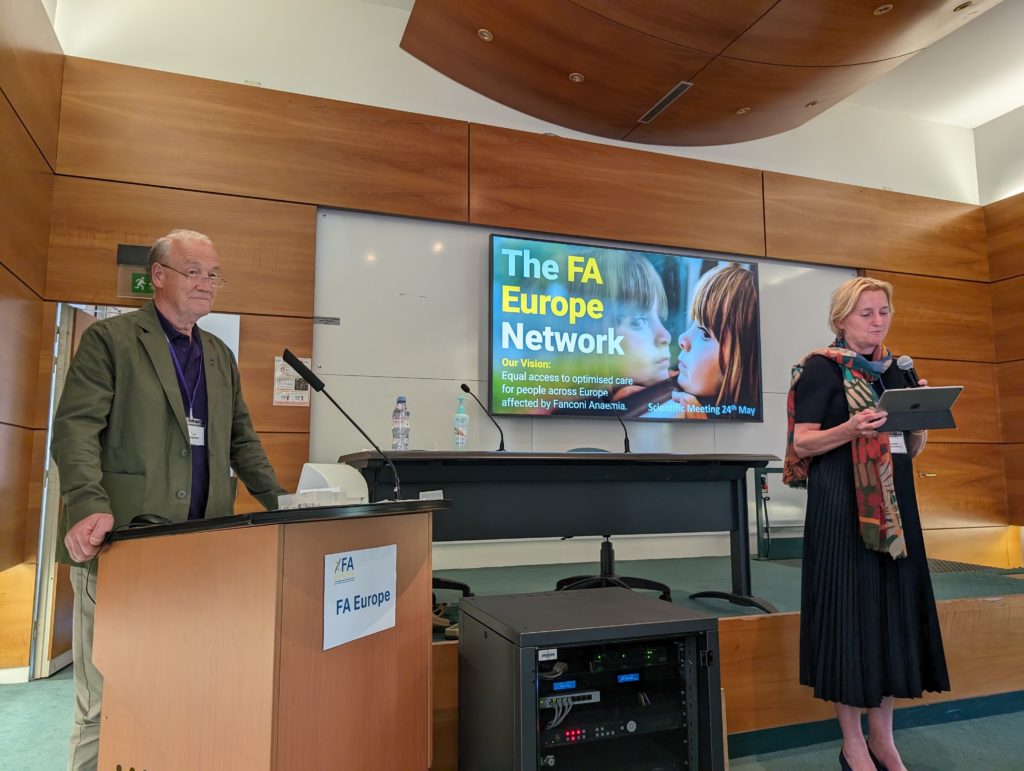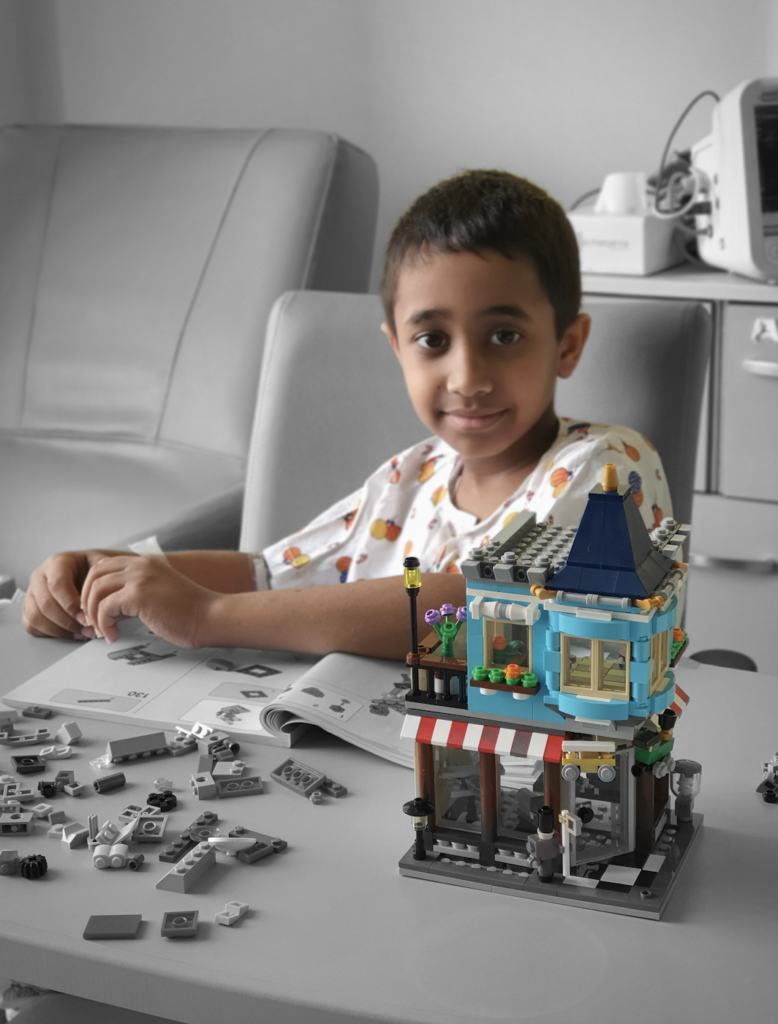In recent years, much of FARF-funded research has focused on ways to prevent and detect cancer, and to develop less toxic therapies to improve and extend lives. As the research expanded, so did our approach to addressing this critical need.
In 2021, FARF focused on advancing translational and clinical approaches, while at the same time supporting basic science research projects that are foundational to the field.
In addition to our research grant award program, we now have large, collaborative research and clinical programs, including specialized focus-groups, a cancer clinical registry, a cancer early detection program, and more.
Below is a recap on the research initiatives made possible in 2021 thanks to our incredible donors, fundraisers, and dedicated researchers. You will read about grants that wrapped up in 2021 as well as newly funded projects, scientific events, and clinical programs and initiatives.
Grants Completed in 2021
CRISPR Transcriptional Screens for Re-Activation of HDR in FA Patient-Derived Cells
Jacob Corn, ETH Zurich
This aim of this grant was to identify potential ways to re-activate DNA repair by using a lab-based technique that activates and inactivates certain genes in FA patient cells. This work allowed the researchers to determine if the overexpression of specific proteins resolved the DNA repair deficiency in FANCA and FANCD2 Fanconi anemia genotypes. The researchers found that removing a single gene from FA cells was sufficient to re-activate faulty DNA repair. These results are significant because identifying genes that play a role in DNA repair in FA cells will be useful for developing future gene editing approaches.
Towards Improved Clinical Management of FA-Related Cancer via a Novel Functional Genomics Approach
Josephine Dorsman, Amsterdam UMC
The aim of this grant was to address the challenge of developing treatment modalities for FA head and neck cancer. In this study, whole exome and whole genome sequencing of FA cancer cell lines were used to identify relevant events associated with FA head and neck cancer. The results demonstrated that the amplification of chromosome 11q22.2, which is associated with the overexpression of the BIRC2-3 gene, is common in FA head and neck cancers. The research team is now working to determine whether chemotherapy approaches targeting overexpressed BIRC2-3 could be used as a clinically realistic treatment for FA head and neck cancers.
Pilot Study of Metformin for Patients with Fanconi Anemia
Akiko Shimamura, Dana Farber/Boston Children’s Cancer and Blood Disorders Center
There were two key outcomes from this clinical research study that have important implications for people with FA. First, metformin was proven safe and well-tolerated in non-diabetic patients with FA. Second, a hematologic response was observed in 4 of the 13 evaluable patients with FA treated with metformin, suggesting the drug may improve blood counts for a subset of patients with FA. The research team is currently working on publishing results from this study and once available, FARF will provide a summary.
Modeling Hematopoietic Clonal Evolution in Fanconi Anemia
Grant Rowe, Boston Children’s Hospital
The aim of this grant was to develop a new model system to study the evolutionary process of FA bone marrow failure to leukemia. Researchers plan to use this model system to understand the genetic pathways required for the development and progression of FA leukemia, and to test new therapeutic approaches.
New Grants Awarded in 2021
FARF/Stand Up to Cancer Project
In 2021, FARF developed a partnership with Stand Up to Cancer (SU2C) to facilitate collaborations and cross-pollination of ideas between the FA community and cancer experts. Stand Up to Cancer supports large integrated research teams that focus their efforts on developing treatments for cancer.
The FARF/ SU2C partnership includes three additional nonprofit organizations: the American Head and Neck Society, the Head and Neck Cancer Alliance, and the Farrah Fawcett Foundation. This collaboration formed a head and neck cancer research team with funding from each organization.
The selected research team is led by FA researcher, Dr. Agata Smorgorzewska from The Rockefeller University. Joining her are over a dozen other researchers, clinicians, and patient advocates, many of whom are familiar with FARF. This team includes other FA researchers including Dr. Barbara Burtness from Yale School of Medicine and Dr. Markus Grompe from Oregon Health and Science University, and other head and neck cancer experts.
The goals for this project include (1) providing a comprehensive understanding of the biology of FA-related tumors; (2) testing new therapeutic approaches to FA-related head and neck squamous cell carcinoma (HNSCC); (3) identifying effective chemoprevention treatments, and (4) assessing the toxicity of potential cancer therapeutics. The team theorizes that by having an improved understanding of FA cancers, they can identify tumor-specific vulnerabilities.
This project will provide a pathway for developing safer and more effective prevention and treatment strategies for HNSCC in the FA population.
Understanding Clonal Hematopoiesis in Fanconi Anemia to Improve Patient Surveillance Strategies
Grant Rowe, Boston Children’s Hospital
Individuals with FA experience accelerated clonal hematopoiesis, with onset as soon as the first few years of life. This results in a very high risk of FA patients developing myelodysplastic syndrome (MDS) and acute myeloid leukemia (AML). This project aims to understand the consequences of mutations recurrently found in FA patient blood stem cells, with the long-term goal of informing surveillance approaches and the decision to use bone marrow transplantation.
Research events in 2021
Workshop on Fanconi-Associated Neurological Syndrome (FANS)
Fanconi Associated Neurological Syndrome (FANS) refers to a set of central nervous system abnormalities that affect some patients with FA. The causes of FANS are ill-defined, and limited treatment options exist for patients with FA who experience this condition. The FARF Sparks workshop on FANS was held in late October and provided an overview of the current clinical state of the field for FANS and an avenue for new collaborative research focused on this topic. FARF staff is working to develop a chapter on current clinical guidelines on FANS to publish in the Fanconi Anemia Clinical Care Guidelines and is facilitating development of a FANS Clinical Board to review cases.
Workshop on FA Gene Editing
The FARF Sparks workshop on FA gene editing was held in early December. Its purpose was to outline the current state of the field for FA gene editing and develop the foundation for a collaborative Gene Editing Dream Team that will apply for grant funding from FARF. During the meeting, researchers from across the world presented on topics such as base editing strategies, correcting FA mutations using digital genome engineering, safety studies, and in vivo gene editing. Development of the Dream Team proposal is being led by Paula Río, PhD, a member of FARF’s Scientific Advisory Board.
Joel Walker Cancer Ideas Lab
The Joel Walker Cancer Ideas Lab was held over a five-day period in early November. During this event, 31 scientists brainstormed ideas on how to shift the paradigm for treating FA cancers, formed interdisciplinary research teams to create grant proposals, and pitched their ideas to a funding panel for the opportunity to win a $500,000 grant award. The winning team consists of doctors Ken Weinberg, Daria Mochly-Rosen, Hiro Nakagawa, Frank Ondrey, and Craig Elmets. This team will develop pre-clinical models to better understand squamous cell carcinoma in individuals with FA. This grant will start in 2022.
Scientific Symposium
In 2021, our virtual research symposium hosted an engaged group of over 500 FA scientists, clinicians, patients, and families from around the world over a four-week period in July. Topics covered during the meeting included gene therapy and gene editing, bone marrow failure, DNA repair, and cancer. The meeting was co-chaired by Juan Bueren and Paula Río from CIEMAT, Sharon Cantor from the University of Massachusetts Medical School, Peter Kurre from the Children’s Hospital of Philadelphia Research Institute, Agata Smogorzewska from the Rockefeller University, and Susanne Wells and Parinda Mehta from Cincinnati Children’s Hospital Medical Center. The FARF Symposium is a necessary catalyst for maintaining momentum in FA research; it provides researchers and clinicians the opportunity to share progress on their work, generate new ideas, and form new collaborative research projects.
Research Programs and Initiatives in 2021
Global Fanconi Anemia Brush Biopsy Program
The Global Fanconi Anemia Brush Biopsy (FABB) program is a grant funded by FARF to help detect and prevent oral cancer. Investigators in this study proved that oral brush biopsies are an effective and safe way to screen people with FA for head and neck cancer. Researchers have shown that people with FA who have a negative brush biopsy test result could be spared painful diagnostic incisional biopsies. Most impressively, the technique also detects a substantial number of early precursor lesions at a non-invasive stage, when surgical removal is highly successful in eliminating cancer. FARF funded the brush biopsy study again in 2020 for an additional three years to expand the service in the United States and to other countries and to provide training for other physicians and laboratories that will analyze the brush biopsy samples. The group has produced a number of educational materials to this end and is currently developing an app to help patients perform self-examinations of their mouths.
Fanconi Anemia Cancer Consortium
Founded in 2021, the Fanconi Anemia Cancer Consortium (FACC) consists of researchers from four research institutions: the University of British Columbia, the University of Düsseldorf, the National Institutes of Health (NIH), and the Rockefeller University. The goal of the consortium is to create collaborative and integrated projects that will focus on improving patient care for early detection, screening, and treatment for FA cancers. Institutions in the consortium will be submitting grant proposals to FARF in 2022 to receive support for their respective projects.
Fanconi Anemia Research Materials
The Fanconi Anemia Research Materials (FARM) repository is a collaboration between FARF and Oregon Health and Science University (OHSU) that stores FA antibodies, human and mouse FA fibroblasts, and cancer cells lines in a centralized repository on the OHSU campus. Scientists can request materials from the FARM for their research projects by completing forms on the OHSU website.
FA Patient Registry focused on FA Cancers
In 2019, FARF and the National Organization for Rare Diseases (NORD) launched a patient registry specifically on Fanconi anemia. The registry consists of patient-directed surveys that collect information about the disease progression and experiences of individuals living with FA. This free and voluntary service helps researchers direct studies that lead to better treatments for FA.
Virtual Tumor Board
The FARF Virtual Tumor Board (VTB) is a panel of physicians from various oncology fields who have experience treating patients with FA. They volunteer to discuss complex FA solid tumor cases and offer treatment guidance.
The VTB was developed to provide support to individuals with FA and their treating physicians, who may have less experience with treating cancer in individuals with FA. The FARF VTB meets virtually with patients’ treating physician(s) to review cases and provide input for treatment from an FA-centric viewpoint.




